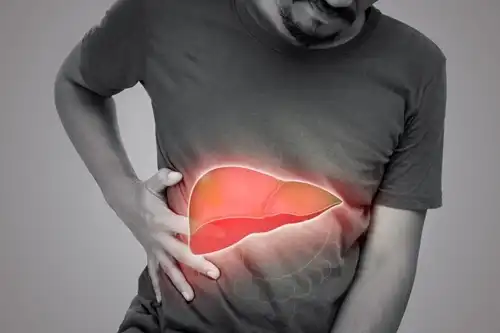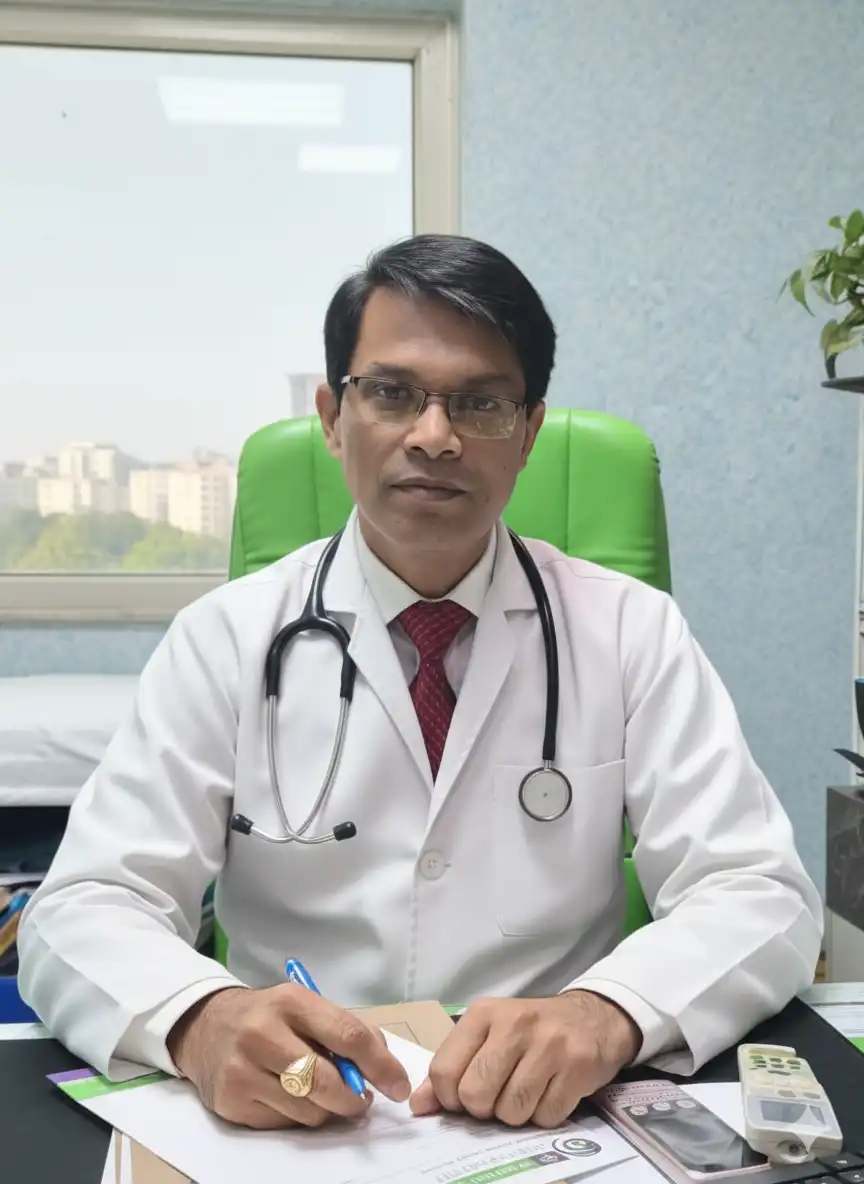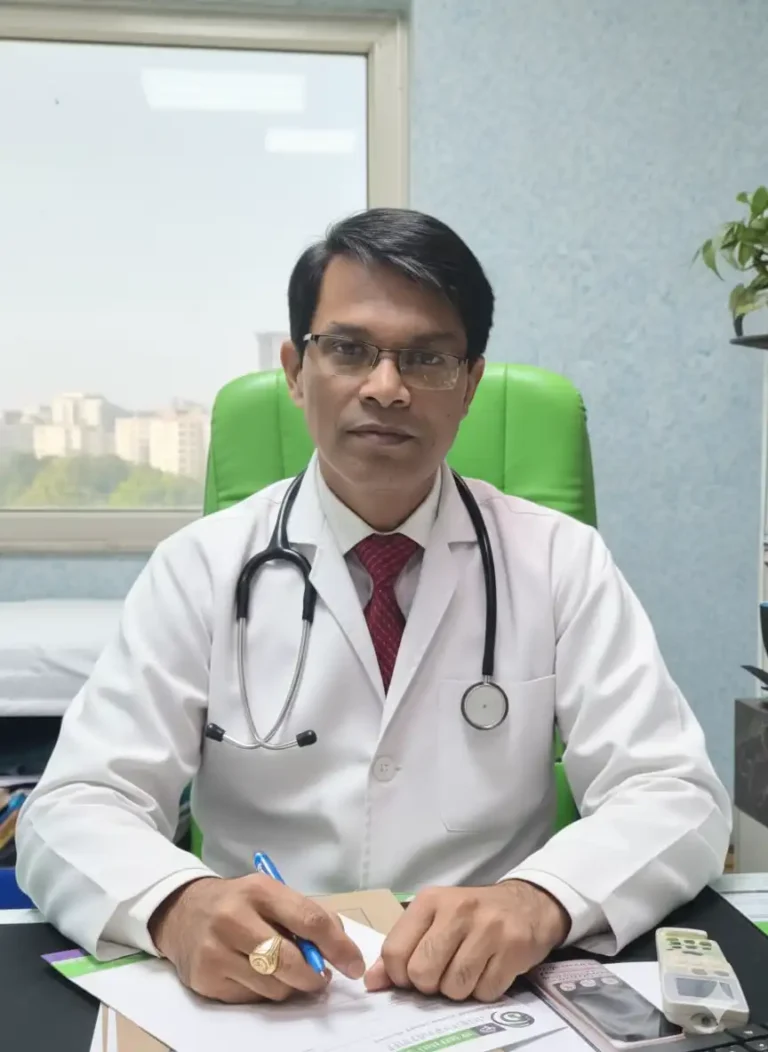
What is Liver Cirrhosis?
Liver cirrhosis is a chronic condition where healthy liver tissue is replaced by scar tissue. This scarring disrupts normal blood flow and reduces the liver’s ability to function. Over time, cirrhosis can lead to complications such as liver failure, infections, and even liver cancer. It usually develops slowly due to long-term liver damage from alcohol, viral hepatitis, or fatty liver disease. Since the liver is vital for detoxification, digestion, and metabolism, cirrhosis has a significant impact on overall health. Early diagnosis, lifestyle changes, and proper medical treatment are essential to manage cirrhosis and prevent further liver deterioration.

What are the early signs and symptoms of cirrhosis?
In the early stages, liver cirrhosis often has no obvious symptoms, making it difficult to detect. As the disease progresses, certain signs may appear, including fatigue, loss of appetite, unexplained weight loss, nausea, and mild abdominal discomfort. Swelling in legs or ankles (edema) and easy bruising may also develop. In more advanced stages, jaundice (yellow skin and eyes), itchy skin, fluid buildup in the abdomen (ascites), and confusion due to toxin buildup may occur. Because cirrhosis can remain silent for years, regular medical checkups and blood tests are crucial for early diagnosis and treatment.
What causes liver cirrhosis?
Cirrhosis develops when chronic liver damage results in scarring. Common causes include long-term alcohol abuse, viral hepatitis B, C, or D, and fatty liver disease (linked with obesity and diabetes). Genetic disorders like Wilson’s disease, hemochromatosis, and alpha-1 antitrypsin deficiency can also lead to cirrhosis. Autoimmune hepatitis, certain medications, and bile duct diseases may contribute as well. When healthy liver tissue is replaced by scar tissue, the liver gradually loses its ability to filter toxins and perform essential functions. Identifying the cause is crucial for effective treatment and to slow down the progression of liver cirrhosis.
Can I get cirrhosis if I don’t drink alcohol?
Yes, you can develop cirrhosis without drinking alcohol. While heavy drinking is a major cause, other factors also damage the liver. Viral hepatitis (B, C, D), nonalcoholic fatty liver disease (NAFLD), autoimmune hepatitis, and genetic conditions like Wilson’s disease or hemochromatosis can lead to cirrhosis. In fact, NAFLD caused by obesity and diabetes is now one of the most common reasons worldwide. Certain medications or long-term liver infections may also contribute. So, cirrhosis is not limited to alcohol users—it can affect anyone with chronic liver injury. Regular checkups help in early detection and better management.
How is cirrhosis diagnosed?
Liver cirrhosis is often discovered during routine checkups or blood tests. Doctors usually order blood tests to evaluate liver enzymes, bilirubin, and kidney function. A complete blood count may reveal anemia or clotting problems. Imaging tests such as ultrasound, CT scan, MRI, or elastography help assess liver stiffness and detect scarring. In some cases, a liver biopsy may be recommended for confirmation. Doctors also evaluate medical history, alcohol use, or risk factors like obesity and viral hepatitis. Early diagnosis is important, as cirrhosis can progress silently for years before symptoms become noticeable or complications arise.
What are the complications of liver cirrhosis?
Cirrhosis can lead to several life-threatening complications. Common issues include fluid buildup in the abdomen (ascites), swelling in the legs (edema), and bleeding from enlarged veins in the stomach or esophagus (varices). Infections, kidney problems, and brain dysfunction (hepatic encephalopathy) may also occur due to toxin buildup. Patients with cirrhosis are at higher risk of developing liver cancer (hepatocellular carcinoma). Long-term scarring reduces blood flow and liver function, leading to liver failure. Osteoporosis and malnutrition are also seen in chronic cases. Regular monitoring, medication, and lifestyle changes are important to manage these complications and improve patient outcomes.
Do you need a special diet if you have cirrhosis?
Yes, diet plays an important role in cirrhosis management. A balanced, nutrient-rich diet helps support liver function and overall health. Patients should eat plenty of fresh fruits, vegetables, whole grains, and lean proteins like fish, chicken, and legumes. Salt intake must be reduced to prevent fluid buildup (ascites and swelling). Small, frequent meals may improve digestion. Patients with advanced cirrhosis may need extra calories and protein to prevent malnutrition. Avoiding alcohol, fried foods, and processed items is crucial. Your doctor or dietician may also suggest vitamin or mineral supplements, depending on your condition and blood test results.
Treatment of Liver Cirrhosis with Homoeopathy
Homeopathy offers a holistic approach to managing liver cirrhosis by focusing on the root cause and improving overall liver function. Unlike conventional treatments that only manage symptoms, homeopathic remedies aim to stimulate the body’s natural healing process, reduce scarring, and restore healthy liver cells. Medicines are prescribed based on individual symptoms like jaundice, ascites, fatigue, or digestive issues. Remedies such as Chelidonium, Carduus Marianus, Lycopodium, and Phosphorus are often used under expert guidance. With regular treatment, lifestyle changes, and a healthy diet, patients may experience improved liver function, better energy levels, and long-term relief.
Why choose Dr. Sanjay’s Homoeopathy for Liver Cirrhosis treatment in Lucknow, India?
Dr. Sanjay’s Homoeopathy is a trusted clinic for safe and effective liver cirrhosis treatment in Lucknow, India. With years of expertise, Dr. Sanjay provides specialized liver cirrhosis homeopathic treatment in Lucknow, India, that helps manage fatigue, jaundice, swelling, digestive issues, and liver damage naturally without harmful side effects. As a leading homeopathic doctor in Lucknow, he follows international treatment standards and offers personalized care that focuses on improving liver function and slowing disease progression. Patients choose Dr. Sanjay’s Homoeopathy for its holistic healing, compassionate care, and proven results in managing chronic liver conditions like cirrhosis.


